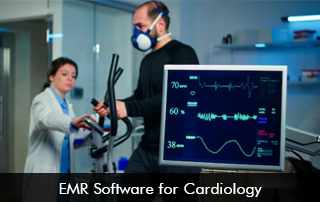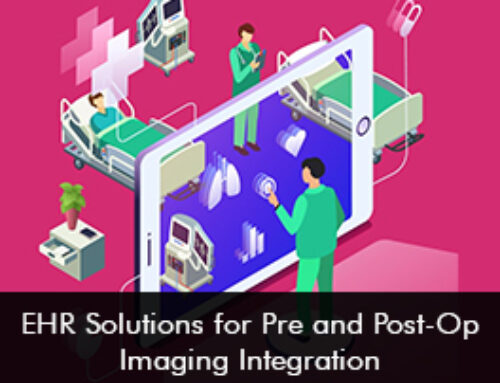A cardiology practice requires implementing a specialized type of Electronic Medical Records (EMR) software that can meet the unique requirements of cardiologists. To improve the cardiovascular health of patients cardiology practices utilize Cardiology EMR Software. It has features and tools that empower providers to support patient diagnosis, treatment, and follow-up.
Functionalities Present in Cardiology EHR Software
The main features that make up a good cardiology electronic medical records software include:
- Cardiac-Specific Templates – These templates are pre-made forms that are tailored to cardiology and are found within the EMR system. They have sections for recording test findings, patient interactions, and other pertinent information such as heart sounds, echocardiograms, and EKGs.
- Imaging Integration – Cardiovascular imaging is fundamental to cardiology. Electronic Health Records software for cardiology works with PACS (Picture Archiving and Communication Systems) to handle, view, and save pictures from echocardiograms, CT scans, MRIs, and other diagnostic equipment.
- Clinical Decision Support Tools – CDS tools are robust enough to provide cardiologists with evidence-based recommendations and alerts.
- Chronic Disease Management – Chronic conditions like heart failure, hypertension, and coronary artery disease affect a large number of cardiology patients. Tools for monitoring, controlling, and following up on these conditions throughout time are in the EMR Software System.
- Patient Engagement Solutions – Patient portal software to keep patients involved throughout their healthcare journey.
- Telehealth Integration – This supports seamless remote care consultations and improves care access.
Importance of Interoperability in Cardiology EHR Software
The robust interoperability options present in Cardiology Electronic Medical Records Software ensure care collaboration. Cardiologists can easily share patient data with other providers and offer well-rounded care to their patients. With improved care coordination any gaps in care can be eliminated so the patient can be offered comprehensive care. Communication opportunities are created with relevant parties having access to the right patient information. Moreover, the interoperability enables the EHR Software to smoothly exchange data with other systems such as labs and imaging systems.
Top 5 Cardiology EMR Software Vendors 2024
- Athenahealth EMR Software
- PrognoCIS EHR Software
- Epic EMR Software
- eClinicalWorks EMR Software
- GE Centricity EHR Software
It is critical to assess each vendor choice in light of your particular practice’s requirements. Cardiology practices should take into account factors like customer service, user experience, and integration capabilities.
AI and Machine Learning Integration in Cardiology EMR Software
Integrating AI and machine learning into the Cardiology EHR Software System transforms patient care by providing advanced predictive analytics, customized treatment regimens, and improved diagnostic accuracy. AI algorithms use huge volumes of patient data, such as medical history, imaging, and genetic information, to forecast cardiovascular risks and optimize treatment techniques. Machine learning algorithms help cardiologists diagnose heart issues by correctly reading medical images and identifying probable irregularities. Furthermore, these technologies simplify clinical processes by automating mundane tasks like data entry and risk stratification, allowing healthcare providers to focus more on patient-centered treatment.







